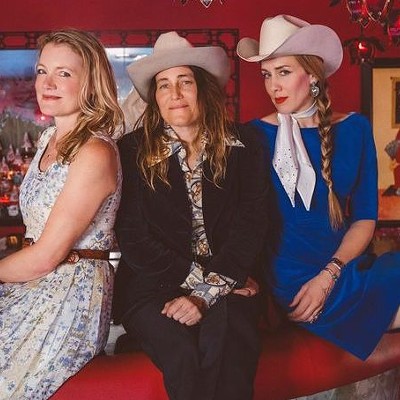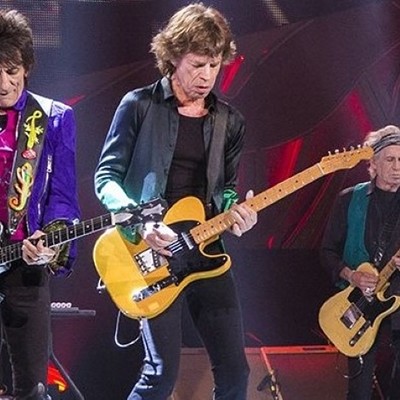One term will brand 2014 for the sub-par music year it was: bro country. First used in print in August 2013 by New Yorker music writer Jody Rosen to describe mainstream-country boy-band Florida Georgia Line's hit single "Cruise," the term has taken on a decidedly derogatory coloring as tools like Luke Bryan and soon-to-be-irrelevant Blake Shelton stamped out unimaginative boilerplate party songs about girls in cut-offs or tight jeans, partying at the creek, driving back roads, and popping a cool one on the tailgate of the Chevy truck.
You know the formula. You're sick of it.
It's too bad the term wasn't coined earlier, like back when country music had real testicles. These earnest pretty boys and Jason Aldean tough guys today look as if the closest they've ever been to a cow is the meat aisle at the grocery store or the drive-thru at Whataburger, but it was not always so.
No, if we'd had our way, bro country would refer to the constant thread of male vocal and instrumental partners that runs through the history of country music. If we could carve a Bro Country Mt. Rushmore, these are the acts would smile at us from on high.
Lonzo and Oscar Along with their slide-guitar-playing cousin, Lonzo and Oscar were like the Three Stooges of country music. Originally members of Eddy Arnold's band -- they would do a 20-minute warm-up -- Lonzo and Oscar quickly became an item once they began recording in 1947; their bodaciously wacky outfits were all part of the satire, a la Minnie Pearl.
Spot-on vocals and instrumental virtuosity that contained a wicked sense of humor and incorporated slapstick and physical comedy proved to be a combination audiences couldn't get enough of. Their most famous track was "I'm My Own Grandpa," which the perhaps overly serious Arnold passed on; it has since been cut by dozens of artists. They were regulars on the Grand Ole Opry for years, although Lonzo (Lloyd George) left the band in 1950 to go solo as Ken Marvin. Rollin Sullivan, who played the part of Oscar, carried on with the act with new performers into the mid-1960s.
Homer and Jethro At the same time the Lonzo and Oscar act was coming together, Henry "Homer" Haynes and Ken "Jethro" Burns were already a well-established act, performing together since the late 1930s. Both men were jazz virtuosos but saw the money in bluegrass and country, toiling in relative obscurity until after World War II, when they were signed by Syd Nathan's Cincinnati-based label King Records.
They worked numerous King sessions before parting with Nathan in a contract dispute. Their A&R man eventually talked the duo into composing and recording parodies of hit songs, a formula that was immediately successful. Over the years their comedic patter became very sophisticated and moved the duo beyond the limits of country music into the mainstream, with appearances on The Tonight Show and performances at Carnegie Hall. It's no surprise they were known as the "Thinking Man's Hillbillies."
Story continues on the next page.





